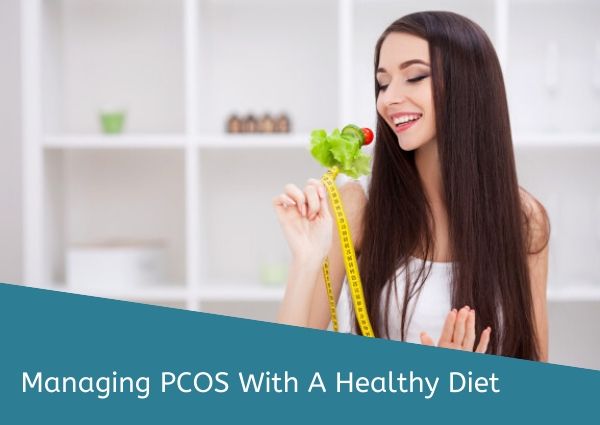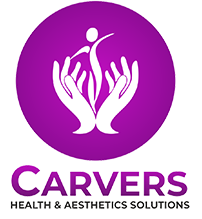Managing PCOS With A Healthy Diet

Managing PCOS With A Healthy Diet
In the following article we’ll mention an important topic that’s “Managing PCOS with a Healthy Diet” let’s discuss within the article given below:
Well, we know that diet is crucial to managing PCOS and we’re going to get into it in a lot more detail on what you should and shouldn’t be eating.
How does my diet affect my PCOS
Changing the way that you eat is one of the most important things you can do to manage your PCOS. You see, you have the ability to get to the heart of the problem, your hormones, simply by changing the way that you eat.
What does the research actually say about a diet plan for PCOS
Now, this is important. The research shows that diet and lifestyle changes are the most effective way of managing PCOS.
Changing your diet should be the first thing that you do when you are diagnosed with PCOS. Unfortunately, not many doctors talk about this and they tend to prescribe medication first. And although you may see some improvements with medication, diet and lifestyle changes will be more effective (and you won’t need to take medication everyday for the rest of your life!)
Okay, so we have hopefully convinced you of the power of a good PCOS diet in managing your PCOS and it’s symptoms. Now we are sure you must be wondering what on earth a diet plan for looks like and what you should be eating.
What are the Best Foods for PCOS?
Whole foods
Whole foods are foods that are actually as natural as well as unprocessed as possible. They are actually really rich in fibre as well as take longer for the body to metabolise and really break them down (because they have a lower glycemic load). This means that they are absorbed more slowly into the blood stream and you need less insulin to deal with them. Remember, less insulin means less testosterone.
Examples of whole foods
Fish, meat, vegetables, fruit, nuts and seeds, healthy oils
Foods with a low Glycemic Load
Foods with a quite low glycemic load are actually those foods that do not cause a big spike in insulin. They tend to be unprocessed, unrefined and rich in fibre and vitamins and minerals. Also, be careful of foods that have added sugars. This can unnecessarily increase the glycemic load of those foods.
Anti-inflammatory foods
Women with PCOS tend to have low levels of chronic inflammation. This makes us more resistant to insulin, chronically fatigued and prone to gaining weight.
While managing those insulin levels will actually help with inflammation, ensuring that your PCOS diet is really rich in anti-inflammatory foods will really help too.
Examples of anti-inflammatory foods
Following are a few examples of anti-inflammatory foods to incorporate into your PCOS diet:
- dark leafy greens, including kale and spinach
- blueberries, blackberries, and cherries
- dark red grapes
- nutrition-dense vegetables, such as broccoli and cauliflower
- beans and lentils
- green tea
- red wine, in moderation
- avocado and coconut
- olives
- extra virgin olive oil
- walnuts, pistachios, pine nuts, and almonds
- cold water fish, including salmon and sardines
- turmeric and cinnamon
- dark chocolate
- spices and herbs
Foods with Healthy Fats
For a long time we have been taught that fats are bad and that fats can make you fat. But healthy fats are such an important part of our diet. A lot of our hormones are made using fats, as well as the sheath that surrounds our nerves.
Fats are also great for helping you feel fuller for longer and can help to lower the glycemic load of foods.
So, look at including some more of the healthy fats into your diet that are given below:
- Avocados
- Dark Chocolate
- Whole Eggs
- Fatty Fish
- Nuts
- Chia Seeds
- Extra Virgin Olive Oil
- Coconuts and Coconut Oil
What are the foods that you should avoid as part of your PCOS Diet?
Dairy
Now I know that this is a tough one for many but dairy is not good for PCOS for many reasons. One of the main issues with dairy is that it contains something called IGF-1 or insulin-growth-factor 1. IGF-1’s main role is to actually promote growth in newborn babies. You can read more about PCOS and Dairy here.
The problem is that it also mimics insulin in the body. And remember, the more insulin we have, the more testosterone we also have, making our PCOS symptoms worse.
The only exception you can have for the dairy rule is that you can still have butter as it is high in good fats and vitamins we struggle to get elsewhere. Also, the dairy content is fairly low.
Examples of dairy alternatives
Rice milk, almond milk, oat milk, coconut milk
We suggest that you try a number of varieties and see which one you like the best.
Gluten
Gluten tends to create general inflammation in the body. You must remember, the more inflammation you actually have, the more resistant you are to insulin and thus the more testosterone you have floating around your bodies.
Now, before you rush off to the gluten free aisle, just a word of caution. Gluten free products actually tend to be highly refined as well as will have a high glycemic load, causing an insulin spike. So, we don’t really recommend gluten free pastas, breads, treats, etc.
Soy products have been shown to delay ovulation in some women. And as we already struggle with ovulation already, I don’t recommend soy products for women with PCOS as it just exacerbates the problem. Soy and PCOS just don’t mix.
How long after changing my diet will I see improvements in my PCOS symptoms?
This tends to be different for everyone but we have many women report weight loss, improved skin and starting a period within about a month of implementing these changes and starting on a PCOS Diet. Hair-related symptoms tend to take the longest to see improvements but it will happen!
